Department of Computer Science
Research Laboratories
Public Health Informatics & Technology
Principal Investigator:
The Bowie State University collaborative program on public health IT education has an objective to create a continuous pipeline of highly-trained diverse and inclusive health information technology (IT) workforce, thus responding to President Biden’s Executive Order and calls for creating and sustaining a diverse public health workforce to better respond to future public health and biological threats such as COVID-19.
Autonomous Technologies Laboratory
Director: Dr. Darsana P. Josyula, Professor, Department of Computer Science
The lab specializes in designing and developing algorithms and technologies geared towards improving the ability of both software systems and hardware components to perform autonomously in real time environments. Integration of both hardware and software components to create autonomous artifacts that can operate under different size, weight, power and time constraints is also a major thrust in the lab. Research in the lab fall under the broad fields of artificial intelligence, robotics, machine learning and artificial cognition - including data mining, image processing, bioinformatics, natural language understanding, time-series analysis, knowledge representation, common sense reasoning, metacognition and sensor data integration.
Center for High-Performance Information Processing (CHIP)
Principal Investigator: Dr. Hoda El-Sayed, Professor, Department of Computer Science
Co-principal Investigators: Dr. George Ude, Professor, Department of Natural Sciences and Dr. Bo Yang, Professor, Department of Computer Science
The Center for High-Performance Information Processing (CHIP) has been established in Bowie State University in order to facilitate and conduct research and enable educational programs in the area of interdisciplinary High-Performance Computing (HPC). The center is directed by Professor Hoda El-Sayed, Director and Principal Investigator, and a Professor in the Department with expertise in parallel computing. CHIP includes a number of collaborating prominent faculty spanning many other applications domain in HPC. HPC is of extreme vitality as it has many applications that are central to our national security and economic competiveness as demonstrated by the recent, July 2015, White House executive order known as the National Strategic Computing Initiative (NSCI).
In addition to Professor El-Sayed, who is serving as the overall director of the Center and specializing in Parallel Programming and Parallel Algorithms. Professor El-Sayed’s immediate research will focus on the productivity of the Partitioned Global Address Space (PGAS) programming and algorithms for application acceleration using Graphical Processing Units (GPUs) and Manycore Chips, such as the Intel Phi., CHIP includes Through Sphinx, we will carry out research in parallel In addition, Professor George Ude, another member of CHIP from the Department of Natural Sciences will focus on sequencing large databases of DNA through a DNA Barcoding Initiative to sample, identify and classify species. Another research effort focused on computer forensics will be led by another center member, Professor Bo Yang. In this work, he will focus on the fact that the explosion in data (big data) generating applications, advances in cloud computing, supercomputing, and the availability of cheap memory and storage led to enormous amounts of data to be sifted through in forensic analysis.
Computational Perception & Animation Laboratory
Director: Dr. Jie Yan, Professor, Department of Computer Science
The focus in this lab is on systems, software and equipment used in graphic related research like 2D, and 3D rendering. Methods for detecting and analyzing facial expressions and affect gestures for system recognition. Realistic emotion and gesture synthesis for an anthropomorphic agent through computer graphics. Computer animation and simulation, human-computer interaction, and video image processing.
Cyber Security Application Laboratory
Director: Dr. Jie Yan, Professor, Department of Computer Science
In this lab, research focuses on Cyber security risk management and the latest equipment and tools used in cyber security trends and practices. Encryption/Decryption technologies are explored as well as software and operating system security.
Virtual Reality Laboratory (VR Lab)
Director: Dr. Sharad Sharma, Professor, Department of Computer Science
Virtual Reality Laboratory (VR Lab) consists of the VR Software Laboratory and the VR Hardware Laboratory in the Computer Science Building. The VR Hardware Lab is equipped with current state of art equipment which includes high quality stereoscopic displays (Corner Cave, 3D Wall), motion trackers, Head mounted displays (nVisor SX111, Z800 Dual Pro, Oculus Rift, HTC Vive, HoloLens, Samsung Gear VR), 3D input devices (Cyber gloves III, 5DT Data glove), and force feedback devices. The VR Software Lab is equipped with high quality 3D graphics workstations (Alien ware 3D Gaming Desktops).
The goal of the VR Lab is to introduce students to Virtual Reality (VR)/ Augmented reality (AR) hardware, software, and provide an opportunity for them to apply this knowledge to applications for education, modeling, simulation, and games. This laboratory applies cutting-edge VR/AR technology currently available in academia and industry. The lab applies research methods from social science, artificial intelligence, software engineering, and data visualization to address the challenge of including social, emotional, and communication factors into modeling and simulation. The students and faculty are pioneering the use of VR/AR/MR technology in areas such as evacuation simulation, way finding, battlefield simulation, multi-user virtual environment (MUVE), instructional modules, mobile augmented reality application (MARA), evacuation drills, VR classroom environment, data visualization, emergency response and decision making.
